Libya's rival ruler could ban UN envoy, complicating peace talks
Updated: 2014-11-25 19:01
(Agencies)
|
||||||||
TRIPOLI - Libya's rival government may forbid a UN official from entering the territory it controls, a move that could make it harder to negotiate an end to a violent struggle for power that threatens to tear the country apart.
The North African oil producer has had two governments since August when a group called Operation Libya Dawn, whose opponents say is supported by Islamists, seized Tripoli forcing the elected anti-Islamist administration of Prime Minister Abdullah al-Thinni to move 1,000 km east.
The new rulers in the capital, an alliance of groups led by Omar al-Hassi who say they helped topple Muammar Gaddafi in 2011 and deny any Islamist links, are not recognized by the United Nations and world powers but control ministries, oil facilities, airports and much of western and central Libya.
In September, UN special envoy Bernadino Leon started talks to end the conflict but both sides have ignored calls for a ceasefire. Violence, such as Monday's bombing of Tripoli airport by forces allied to Thinni, has also dimmed the outlook for the talks.
Hassi's government said it could restrict Leon's entry to Libya, limiting any role he could play in talks, unless he recognizes a ruling by the Supreme Court.
"Mr Leon, as I said several times before, might be declared an unwanted person, persona non grata and banned from visiting Libya because of his bias," Mohamed al-Ghirani, the foreign minister, told Reuters.
He said Leon had disrespected Libyan law by refusing to recognize the ruling declaring the House of Representatives, which was elected in June and is based in the east like Thinni, unconstitutional.
Critics have said the judges might not have been independent as the court is based in Tripoli. But Ghirani said no pressure had been put on the judges at the court which Western diplomats previously praised as one of the most efficient state bodies.
The dialogue, launched first in the southern city of Ghadames, has included lawmakers from Misrata, a western city that is home to most Dawn leaders. But they have so far not included armed groups, the real power in a country with weak institutions after 42 years of one-man rule.
Ghirani's government has reinstated the previous parliament, the General National Congress. Leon has met GNC president Nuri Abu Sahmain though UN officials said he did not met him in his official capacity.
DOUBLE STANDARDS
Thinni and Haftar have said Hassi's government is being supported by radical Islamists. Hassi's officials deny this and say Thinni is trying to bring back former Gaddafi regime officials. Haftar made a career under Gaddafi before falling out with him in the 80s.
Ghirani accused the UN Security Council of double standards for labelling as terrorists the Islamic militant group Ansar al-Sharia but not Haftar, who has declared war on Islamists.
Ansar has been blamed by Washington for a 2012 assault on the US consulate in Benghazi which killed the US ambassador.
Ghirani said while some Ansar members might be extremists Haftar was getting away with air strikes on Benghazi and western Libya with the help of Egypt and the United Arab Emirates.
The two countries, both worried about the spread of Islamists, have denied participating in strikes. Haftar says he only targets Islamists' positions.
A career diplomat, Ghirani was Libya's ambassador to Jordan until he joined Hassi's government.
He said the international community would have to accept Hassi because the foreign ministry, with more than 2,000 staff as well as Libyan embassies in Morocco, Belgium, Jordan, Russia and elsewhere, had joined his side.
Only about 15 foreign ministry staff had moved to Bayda in the east where Thinni's government is operating from, he said. Reuters was unable to verify this.
Most Western and Arab embassies moved out of Tripoli in summer when fighting escalated and have refused to return despite an improvement in security that has meant cafes and shops are buzzing again.
"The situation in Tripoli is totally normal," Ghirani said, pointing to a busy street outside his office.
Some European countries with major business interests in Libya such as Italy have kept diplomats in Tripoli though refused to meet Ghirani.
"They have embassies but don't deal with us," he said. "Even when there were meetings they were unofficial. This means nothing. They say we are studying (the situation). What are they studying?"
He also said his government was willing to pay compensation to firms from the vital oil and other industries which suffered damage during the fighting if they returned.
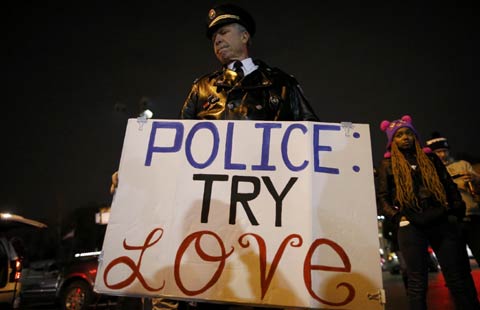
 Ferguson grand jury has reached decision
Ferguson grand jury has reached decision
 Top 7 affects of rate cut on people's life
Top 7 affects of rate cut on people's life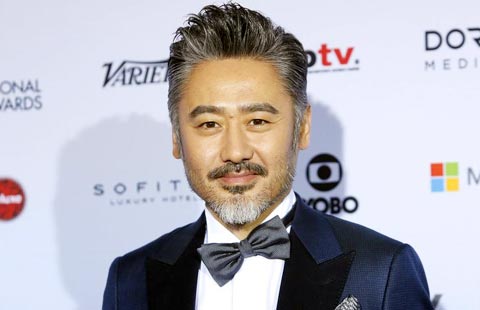
 42nd International Emmy Awards held in New York
42nd International Emmy Awards held in New York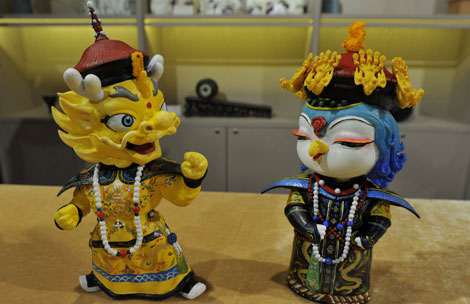
 Forbidden City more welcoming
Forbidden City more welcoming
 Olympic champ Sun Yang failed doping test in May
Olympic champ Sun Yang failed doping test in May
 Top 10 kinds of foreigners in China
Top 10 kinds of foreigners in China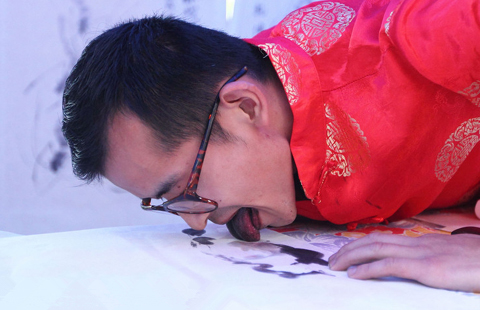
 Trending: Hangzhou man licks out painting
Trending: Hangzhou man licks out painting
 Rio 2016 mascots combine Brazilian fauna, flora
Rio 2016 mascots combine Brazilian fauna, flora
Most Viewed
Editor's Picks

|

|

|
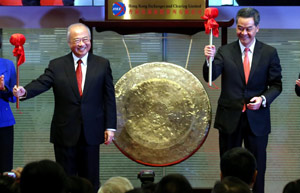
|

|

|
Today's Top News
Breast cancer study receives $1.5 million grant
SAT scores canceled for some test-takers in China, Korea
Wealthy want kids to study abroad
Hagel resigning as American defense secretary
Growth in telemedicine expected with aging population
Nation to top green list by 2030
SAT scores canceled for some test-takers in China, Korea
Country enhances security checks for govt websites
US Weekly

|

|







